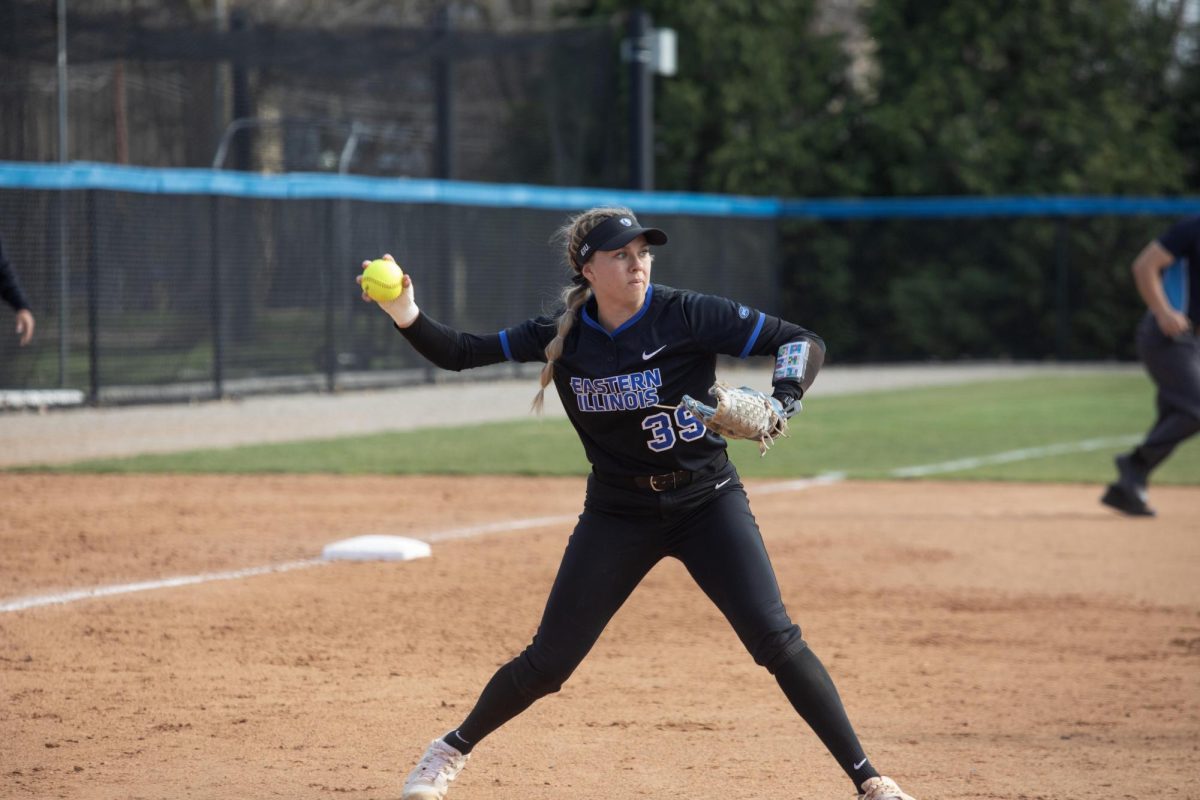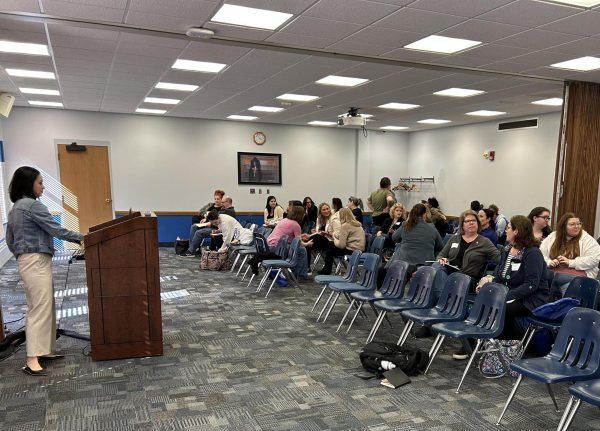Campus pond stocked with trout
On Oct. 20, trout season began in 36 lakes and ponds throughout Illinois.
In Coles County, Eastern’s Campus Pond is the only one that’s stocked.
“I don’t know if there’s any other state property (in Coles County) that has a pond on it,” said Dave Crockett, Eastern’s associate director of facilities planning and management. “It’s easily found with good parking and access, and it’s small enough to manage for a special season and a special species.”
Larry Dunham, fisheries administrator for the Illinois Department of Natural Resources, said locations where about 70,000 trout are stocked doesn’t change frequently.
“We’ve had a list of areas we’ve stocked for a number of years, and we haven’t expanded it,” Dunham said.
The trout come from private vendors because they aren’t indigenous to Illinois. Coles County gets its trout from Crystal Lake Fisheries in southwestern Missouri.
The fishery management agreement between Eastern and the Illinois Department of Conservation began in 1983. The agreement states that Eastern is responsible for enforcing the 1971 Fish Code and the Boat Registration and Safety Act.
Eastern also is responsible for keeping the area clean, particularly of snagged fishing lures and lines, Crockett said.
Beyond that, he said, there is little Eastern does with Campus Pond once the trout are there.
The fish do not need to be fed because they feed on minnows and insects already in the pond. The IDNR establishes the regulations and catch limits and provides the trout.
“We really don’t do anything for it,” Crockett said. “Really, all we have to do is have the pond here, and (the IDNR) takes it over from there.”
In addition to a fishing license, an inland trout stamp is required to catch trout. Both can be obtained online through the IDNR.
The trout are already full-sized when they arrive and do not live through the winter, so their purpose is short-lived.
“(Trout season) really doesn’t ‘end,'” Dunham said. “We stock them in the spring and the fall, and for the most part, they’re all caught in two or three weeks.”






![[Thumbnail Edition] Eastern Illinois softball senior infielder Briana Gonzalez resetting in the batter's box after a pitch at Williams Field during Eastern’s first game against Southeast Missouri State as Eastern split the games as Eastern lost the first game 3-0 and won the second 8-5 on March 28.](https://www.dailyeasternnews.com/wp-content/uploads/2025/04/SBSEMO_11_O-1-e1743993806746-1200x692.jpg)






![[Thumbnail Edition] Junior right-handed Pitcher Lukas Touma catches at the game against Bradley University Tuesday](https://www.dailyeasternnews.com/wp-content/uploads/2025/03/MBSN_14_O-e1743293284377-1200x670.jpg)

![[Thumbnail Edition] Senior Foward Macy McGlone, getsw the ball and gets the point during the first half of the game aginst Western Illinois University,, Eastern Illinois University Lost to Western Illinois University Thursday March 6 20205, 78-75 EIU lost making it the end of their season](https://www.dailyeasternnews.com/wp-content/uploads/2025/03/WBB_OVC_03_O-1-e1743361637111-1200x614.jpg)







































![The Weeklings lead guitarist John Merjave [Left] and guitarist Bob Burger [Right] perform "I Am the Walrus" at The Weeklings Beatles Bash concert in the Dvorak Concert Hall on Saturday.](https://www.dailyeasternnews.com/wp-content/uploads/2025/03/WL_01_O-1200x900.jpg)
![The team listens as its captain Patience Cox [Number 25] lectures to them about what's appropriate to talk about through practice during "The Wolves" on Thursday, March 6, in the Black Box Theatre in the Doudna Fine Arts Center in Charleston, Ill.](https://www.dailyeasternnews.com/wp-content/uploads/2025/03/WolvesPre-12-1200x800.jpg)

















